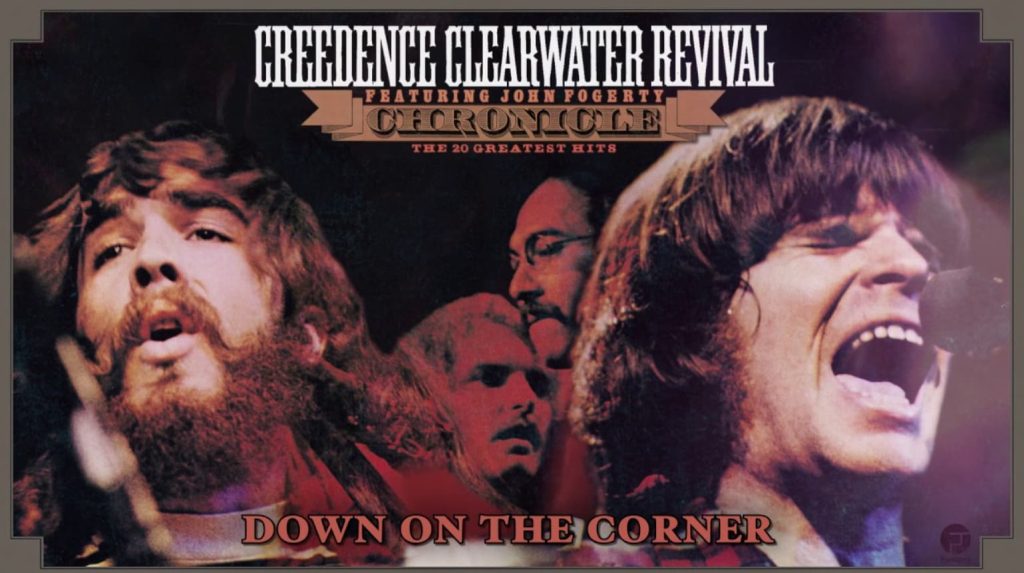
Creedence Clearwater Revival Takes it to the Streets with “Down on the Corner”
Let’s turn back the clock to 1969, a time of immense cultural and musical change. In the midst of it all, Creedence Clearwater Revival, a band known for their swamp rock sound, released their fourth studio album, “Willy and the Poor Boys.” This album not only delivered the iconic anti-war anthem “Fortunate Son,” but also offered a slice of Americana with the upbeat and infectious “Down on the Corner.”
“Down on the Corner” isn’t your typical rock and roll anthem. It takes us away from the stage lights and into the heart of a small town, painting a picture of a fictional band – Willy and the Poor Boys – bringing joy to the community with their street corner performances. Imagine a warm summer evening, just around supper time, as folks gather near the courthouse. The workday is done, and a sense of leisure fills the air. This is the perfect setting for Willy and his band to pull out their unique instruments: a harmonica, a washboard, a kazoo, and even a gut bass – a far cry from the electric guitars and drums dominating the rock scene.
The song’s energy is undeniable. John Fogerty, Creedence Clearwater Revival’s lead singer and songwriter, described it as having “an infectious calypso beat.” It’s a foot-tapper, a melody that makes you want to tap your feet and tap along with the washboard rhythm. The lyrics are simple yet evocative, inviting listeners to “bring a nickel; tap your feet” and enjoy the free entertainment.
But “Down on the Corner” is more than just a catchy tune. It’s a celebration of grassroots music, the kind that’s born on street corners and played for the love of it. It speaks to the power of music to uplift spirits and bring people together, even with the simplest of instruments. While Creedence Clearwater Revival became known for their powerful rock sound, “Down on the Corner” reminds us of their ability to capture the essence of Americana and tell a story that resonates with everyday people.
Interestingly, the inspiration for the song came from an unexpected source. Fogerty himself shared that the name “Willy and the Poor Boys” was sparked by an advertisement for Winnie the Pooh! This whimsical connection adds another layer to the song’s charm, reminding us that creativity can strike from anywhere, even from a children’s book character.
“Down on the Corner” wasn’t just a hit in the United States, reaching number 3 on the Billboard Hot 100. It also found success in Europe, particularly Germany and Austria. This global appeal speaks to the universality of the song’s message – the power of music to connect and uplift, regardless of location or background.
So, the next time you hear “Down on the Corner,” take a moment to appreciate the simple joys it evokes. Imagine the warm summer evening, the sounds of the washboard and harmonica, and the smiles on the faces of the people gathered around. It’s a reminder that music can be found anywhere, even on a street corner, and that sometimes the simplest tunes have the greatest impact.